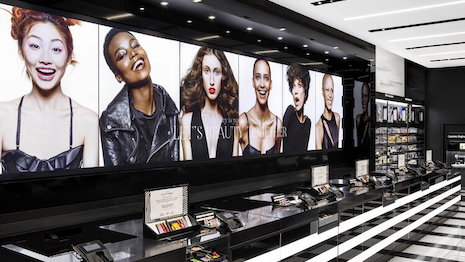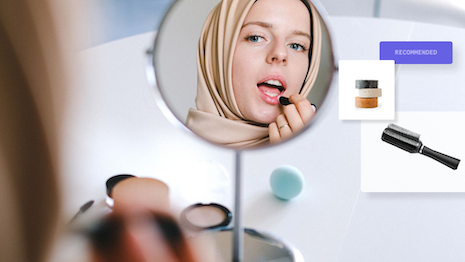 High-spend beauty shoppers are more likely to prefer beauty retailers than Amazon. Image credit: Sephora
High-spend beauty shoppers are more likely to prefer beauty retailers than Amazon. Image credit: Sephora
Although beauty ecommerce sales have grown during the pandemic, more than half of consumers are opting to purchase tried-and-true favorites, according to new research.
According to the “Future of Beauty and Skincare Ecommerce” report from ecommerce personalization platform Nosto, 44 percent of beauty consumers have purchased more products online than in-store during the last 6 months than they did before lockdowns. Features such as customer reviews, virtual try-ons and other personalization tactics can further encourage online beauty purchases.
“With lockdowns and continuing concerns over COVID-19 likely to lead to the continued shutdown or restrictions of physical retail, beauty and cosmetics retailers face a huge opportunity online – despite challenges around encouraging shoppers to try out new brands and products,” said Jake Chatt, head of brand marketing at Nosto, New York.
The report is based on an October survey of 2,000 consumers ages 16 to 35 in the United States and United Kingdom.
Motivating online shoppers
Fifty-six percent of respondents have a tendency to buy beauty brands or products they have purchased previously when shopping online, instead of trying something new. This includes 62 percent of shoppers who identify as female.
While online shopping, many consumers are able to be more intentional with their purchases. Beauty retailers, however, still have an opportunity to influence purchases if they approach ecommerce strategically.
 Most online shoppers can be convinced by product reviews and recommendations. Image credit: Nosto
Most online shoppers can be convinced by product reviews and recommendations. Image credit: Nosto
Nearly three-quarters of all consumers, 74 percent, and 80 percent of female shoppers are more likely to purchase from a store or brand that includes customer reviews on their website. Seventy-two percent of beauty shoppers are also motivated to shop with retailers that include free samples with their orders.
About two-thirds of consumers are encouraged to purchase from brands with ecommerce sites that recommend relevant products that are similar to what they’re shopping for. Sixty-three percent favor sites that remember their shopping preferences and customize the online experience, and 62 percent enjoy shopping on sits that feature user-generated content from other beauty fans.
Other ways beauty brands can motivate online shoppers include offering online quizzes to provide product recommendations, using virtual reality or artificial intelligence for digital “try-ons” and offering virtual beauty consultations.
Ethical messaging and labeling also increasingly attracts beauty shoppers.
Consumers report being “likely” or “very like” to purchase products advertised as using “clean ingredients” or being cruelty-free and not tested on animals, at a rate of 68 and 65 percent, respectively. Nearly six in 10 shoppers also look for beauty items that tout sustainable packaging or “natural and organic” labeling.
Beauty adapts
The coronavirus pandemic has accelerated trends across the luxury industry, including in the personal care and cosmetics sector.
According to digital marketing agency Tinuiti’s “Beauty Industry Trends Report 2020,” the sector remains resilient as both purchase frequency and spending are up year-over-year. A quarter of shoppers have also increased their online spending during the pandemic, but high-priority purchases have shifted towards skincare spending and away from makeup purchases (see story).
In particular, Italian beauty brands have embraced digital strategies and a shift in values as they continue to recover from the coronavirus crisis and look to further their foothold in the U.S.
Panelists speaking at a Beauty Made in Italy program in October shared how the industry has made significant strides towards embracing and exploring how digital and physical in-store experiences will shift permanently to compliment each other. Agility and adaptability are essential, especially for smaller beauty companies which relied so heavily on face-to-face business (see story).